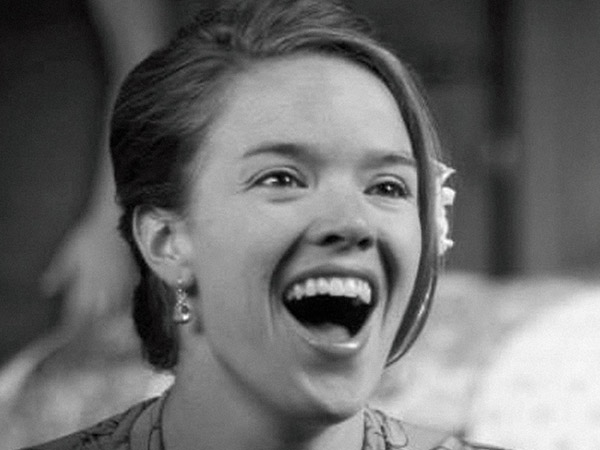
Meghan has nearly a decade of experience in strategy development and project management. Most recently, she served as Managing Editor of two nationally distributed publications where she oversaw operations and productions for both magazines. Prior to her time in the publishing world, she served as Director of Development for Slow Money, a non-profit that facilitates the flow of capital to local, sustainable agricultural producers. In addition to her professional experience, Meghan received her MBA in Sustainable Management from Presidio Graduate School in 2012 and has Journalism and English degrees from the University of Colorado.
Show highlights:
- Why Meghan co-founded Conscious Company Magazine
- How Meghan bounced back from a Kickstarter campaign that fell just a little bit short
- How having a Co-CEO is like a marriage, with your product as your child
- What the future of the business will look like
Show links:
- Conscious Company Magazine
- Eileen Fisher Feature In Conscious Company Magazine (21:30)
- Sum + Substance
With all due respect, you must be batshit crazy to start a print magazine in 2015. What the hell possessed you to start a magazine?
I feel like batshit crazy should be on my business card. I get this a lot. People are interested in learning more about the decision to launch a print publication. As we saw it, there was a gaping hole in the market. Magazines aren’t going away. I don’t believe the print industry is dying. I think there’s evidence to the contrary. As we were looking at this, there wasn’t a beautifully produced, well written offering that talked about sustainable business. It’s a burgeoning movement with all these businesses doing amazing things in the world, and no one was really telling their stories or aggregating the voices from this movement.
We had the crazy idea over a bottle of wine and pizza. We were just young enough, crazy enough and naive enough to think that we could actually do it. It started as a beautiful dream to see if we could. I think we were more interested to see if we could launch a magazine. Then once we did launch a magazine, we’ve just been holding on for dear life.
Many social entrepreneurs are batshit crazy. That’s what gives them this audacious and bold attitude to do new things and change the world.
I don’t want to lump myself in that category and saw we’re changing the world, but we’re doing something bold.
Who over the last 6 or 7 issues has delivered a ‘holy shit’ moment?
The biggest holy shit moment for me has been walking into Eileen Fisher’s house in New York and sitting at her kitchen table and talking to her.
You can build up how people will be like in your brain. I’m expecting this New York fashion icon. And I’m like this Boulder, hippie girl. I didn’t know what to wear, I was worried I was going to be intimidated by her. What do you wear to a fashion mogul’s house?
I was so nervous walking into it, and she’s the most kind hearted, sweet soul I’ve ever come across. We had the most amazing conversation. At the end of it I’m crying. Her whole staff was that way. Many of her team members were at her house and listening into the interview. You could just tell by the people that surrounded her, and by the people that were on her team that she was the real deal.
There was something so authentic and wonderful about her. So that for me was a knock your socks off kind of moment. (Read the feature here)
Why do our business leaders still not get that caring is so incredibly powerful?
I wish I knew. That’s part of our charge as a magazine to make the business case for these practices so that traditional business people could pick up our magazine and actually understand that there’s bottom line implications for treating your stakeholders well. And having a regard for the environment and doing things with purpose and care.
I think it’s inevitable. There’s so many different variables that are coming into play right now. The access to information that we have today is making it so that there has to be a level of transparency in business. When businesses aren’t transparent, then people don’t trust them. When people don’t trust them, they don’t buy their products and services. I think the millennial generation just grow caring about things differently and wanting more out of work. They have a different mentality. They don’t want to work somewhere their entire career, build a life savings and then travel the world at 65. They want purpose now. They want to be giving back immediately.
Millennials are now the largest section of the workforce in the United States. In order to attract and retain them, there needs to be a level of purpose as well. Somewhere in that perfect storm of components that are coming about, I just think it’s inevitable. It’s just smart business. There’s a level of risk mitigation there. There’s a level of strategic thinking. They’re mitigating the potentials for disaster down the road by actually thinking through all the scenarios of how things can play out.
I don’t understand why there are some business leaders who don’t get it right now. Our tagline for the magazine is “The Future Of Business As Usual.” I do believe that our business magazine, 10-20 years from now, will just be a business magazine. It’s not going to be a sustainable business magazine because it’s how business will be done in the future.
Listen to more episodes from the Built On Purpose podcast at yscouts.com/podcast.
